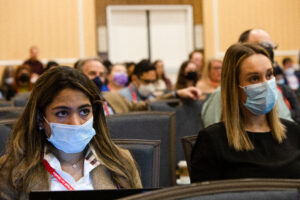
Diseases caused by mosquitoes, ticks and fleas tripled and nine new pathogens carried by these insects have been discovered in the U.S. since 2004, according to the Centers for Disease Control and Prevention. Water-borne bacteria that thrive in warm conditions have shown up in Alaska marine life and the number of bacteria resistant to most antibiotics is rising.
A common thread involved in all of these public health threats is climate change.
As the amount of carbon dioxide has spiked in the atmosphere over the past 100 years, land and ocean temperatures have risen about 1.33 degrees Fahrenheit. Rising temperatures have led to more violent storms, bigger rainfalls, droughts, wildfires, flooding and increased fluctuations in heat and cold around the globe. Reproduction of insects carrying pathogens dangerous to humans has sped up and rising temperatures have enabled them to spread into new environments.
“We’re getting down to a point where people need to act immediately to try to prevent the most catastrophic consequences,” Caren Solomon, a physician at Brigham and Women’s Hospital told Vox News. If nothing changes, these public health threats will only “get tremendously worse” and result in hundreds of thousands of premature deaths, she says.
The bright spot is that journalists can make a difference with their coverage.
“I think journalists have an absolutely crucial role, particularly in this era of ‘fake news,’” Sir Andy Haines, M.D., a professor of environmental change and public health at the London School of Hygiene and Tropical Medicine, told the Harvard Kennedy School’s Shorenstein Center on Media, Politics and Public Policy. “Journalists have a very important perspective and role in helping the public to distinguish opinions and views that are based on strong evidence from those that are not.”
See our latest tip sheet for some background, story ideas and contact information for sources.
Some recent stories on the topic:






